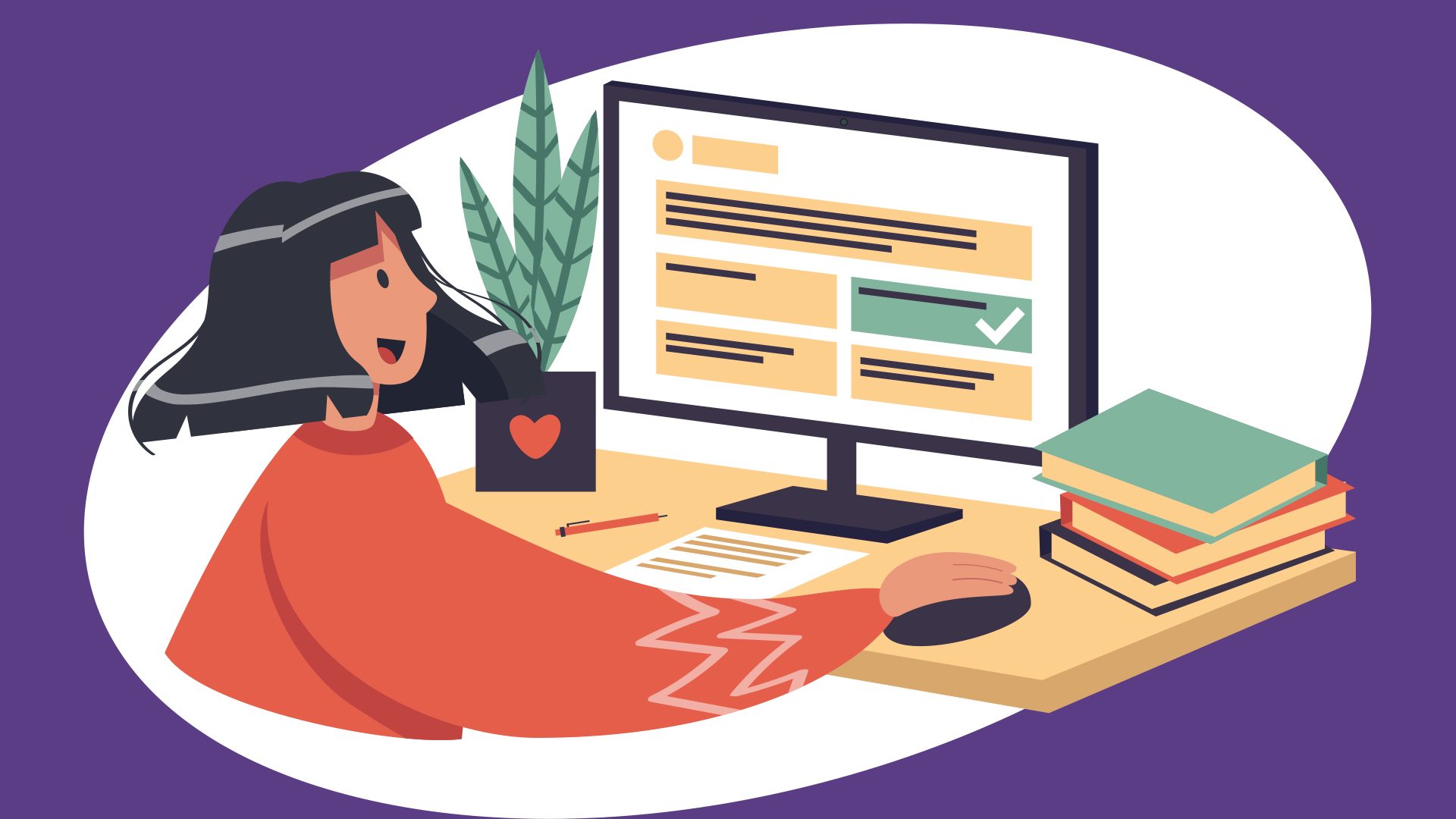SUMMARY
This is AI generated summarization, which may have errors. For context, always refer to the full article.

Despite calls for an academic freeze, a new school year has rolled in online. Along with it, have come the ups and downs of studying from home. Problems like ruined sleep schedules and connectivity issues make the experience all the more difficult.
With that in mind, this guide is here to help you survive online classes, with tips to boost your productivity and keep all of your tasks accounted for.
(Note: While this guide may help those enrolled in online school, it’s important to remember that many Filipino students don’t have all the resources ready, like a laptop or internet connection. Check out these different campaigns to help those who aren’t as privileged.)
Daily routines
When we’re stuck at home, it’s easy to fall behind and find yourself sleeping and waking up late. When your circadian rhythm is out of sorts, your work follows. That’s why a daily routine can help us reach our peak productivity.
Each person’s daily routine differs. However, we recommend making sure that you eat and sleep at the same times everyday. Another tip we have is to get ready in the morning as if you’re actually going to class! Taking a shower and dressing up can help you feel more focused, and separates your “home self” from your “school self.”
We also recommend adding a planner to your routine. Checking your planner daily keeps you caught up with any important events or tasks. You can keep a physical planner (whether premade or a bullet journal) or go digital with apps like Google Calendar and Notion.
Time management
It might help to prioritize the biggest tasks first.
Techniques that might help you in managing your time are Timeboxing and Energy-Based Time Management. Timeboxing means allotting a certain amount of time for each task, providing more structure to your to-do list.
Energy-Based Time Management, on the other hand, involves determining your energy levels throughout the day and scheduling tasks based on that. Difficult and taxing activities are done during peak productivity hours. Meanwhile, tasks that don’t require much skill or thought are done during low-energy hours.
Have a dedicated study place
It helps to have a separate space so you prime yourself and know that it’s all about work when you’re there. This helps to eliminate wandering thoughts or any possible distractions since you have a visual reminder through your environment that you have to work. Ideally, this workspace should be separated from your “play space.”
If there’s an area in your room where you spend most of your time being on social media, resting, doing your hobbies, etc. it’s probably best that you avoid working in that space so as to not clutter your mind with unrelated things when you do your work.
A good workspace is clean, organized, and peaceful. It really comes down to personal preference but the most important factor is how comfortable the space is for you. Maximizing your comfort and positivity in your workspace will surely manifest in the way your output is produced.
Organize!
No one wants to see a cluttered desktop or an out-of-place file in your documents. The more organized you are, the faster you can navigate through your files. We always look for the most efficient way we go about our daily tasks and having a properly curated filing system is surely a big help.
Labelling folders and files makes for an easier search. Seeing a cluttered desktop or storage location can add to the stress and possibly discourage you from continuing on with your work. It’s all about streamlining your work process, so as not to lose momentum.
Take care of yourself
Work has a tendency to make us doubt ourselves and create worries in our minds. Being kind to yourself will, no doubt, channel onto whatever you’re working on. Sometimes, our biggest critics are ourselves (which can be both a good or bad thing!).
Overworking yourself might cause mental and physical health issues, so take work breaks in between tasks. Allow yourself to mentally and physically reset for the next wave of work. It’s even beneficial to have at least a whole day per week where you allow yourself to be away from work and do other things like your hobbies or catching up with friends and family.
School has a tendency to make us overextend ourselves in order to get the best possible outcome.
We always push hard for the highest grades or to be top of the class. As we work towards these goals, we sometimes forget the importance of slowing down and taking the time for ourselves. Something you could do to incentivise yourself is providing self rewards when you have achieved something. Had a perfect quiz? Allow yourself to watch a few episodes of that one show you’ve been pushing aside. Did you ace that presentation? Maybe you can purchase something during an upcoming online sale.
Now that both students and teachers alike are struggling to adapt to an online setting for everything, it’s important that we realize that productivity doesn’t always mean you should be constantly working.
Properly planning out your days, organizing your process, and celebrating the little victories all help in avoiding possible complications during the upcoming school year. These are just some of the tips you can incorporate in your daily hustle.
It’s not always about working hard, sometimes all you need is to work efficiently. – Rappler.com
Renzo Guevara and Cristeen Salazar are Rappler interns

Reward yourself by shopping online with this Lazada coupon.
Add a comment
How does this make you feel?
There are no comments yet. Add your comment to start the conversation.